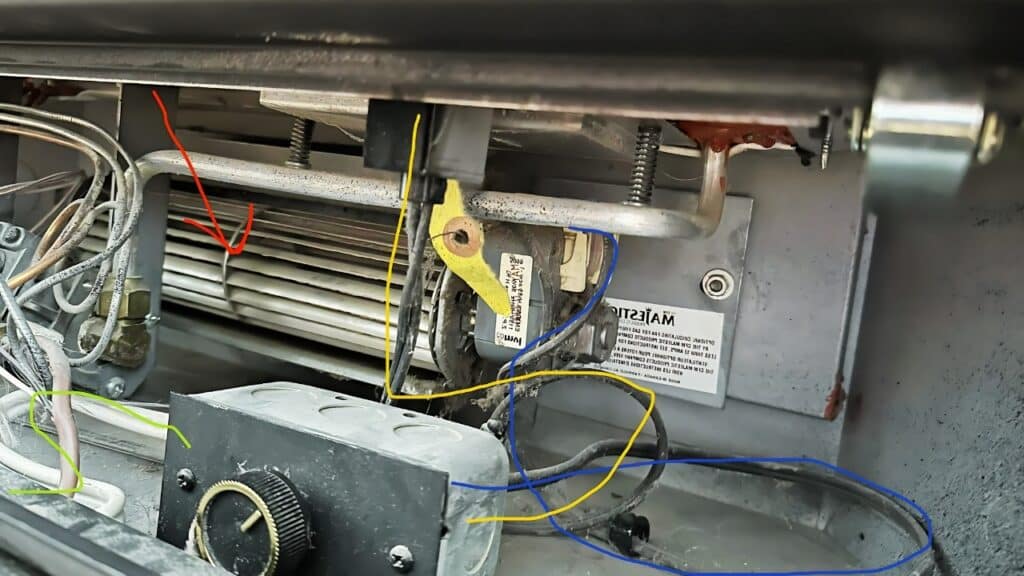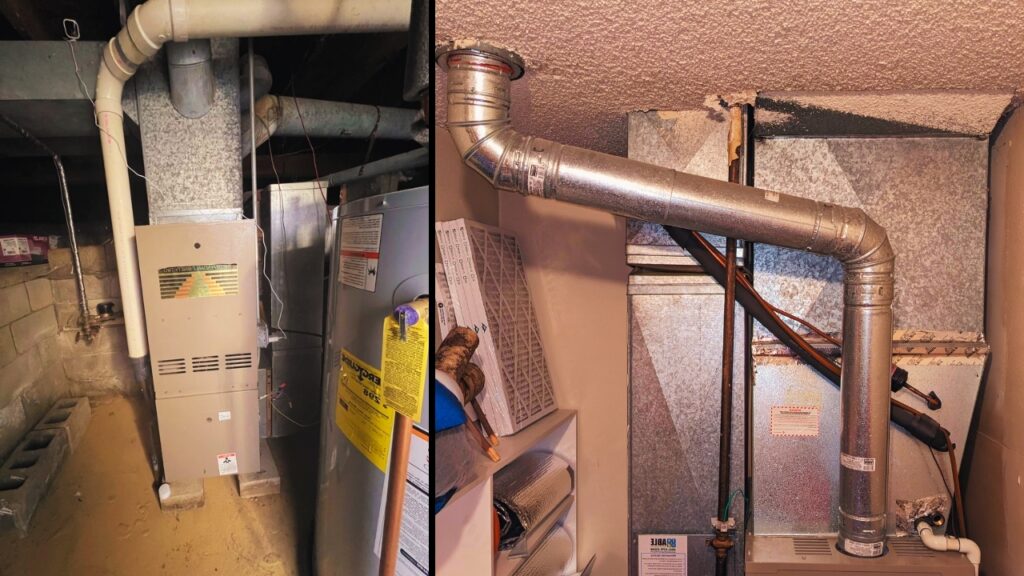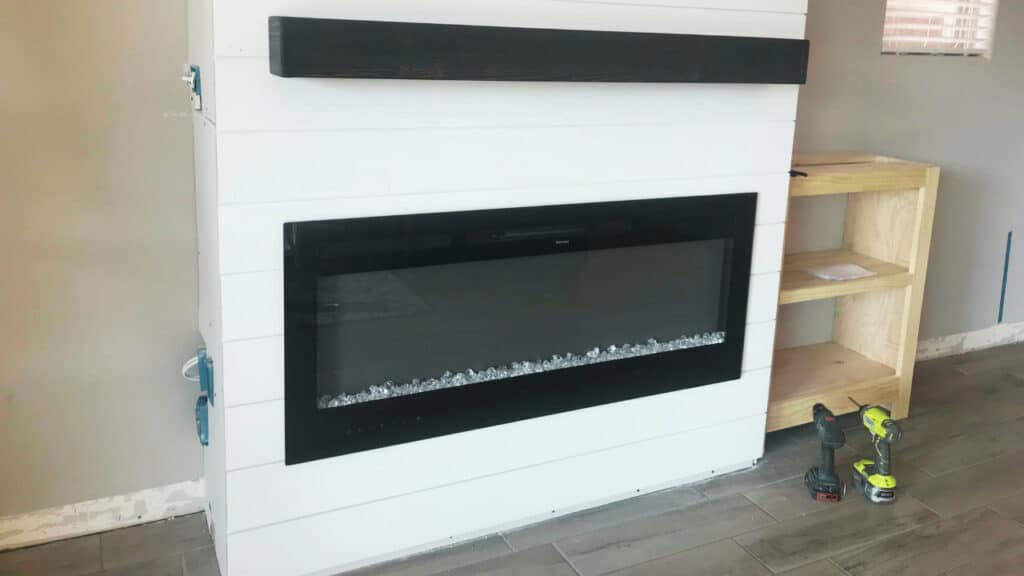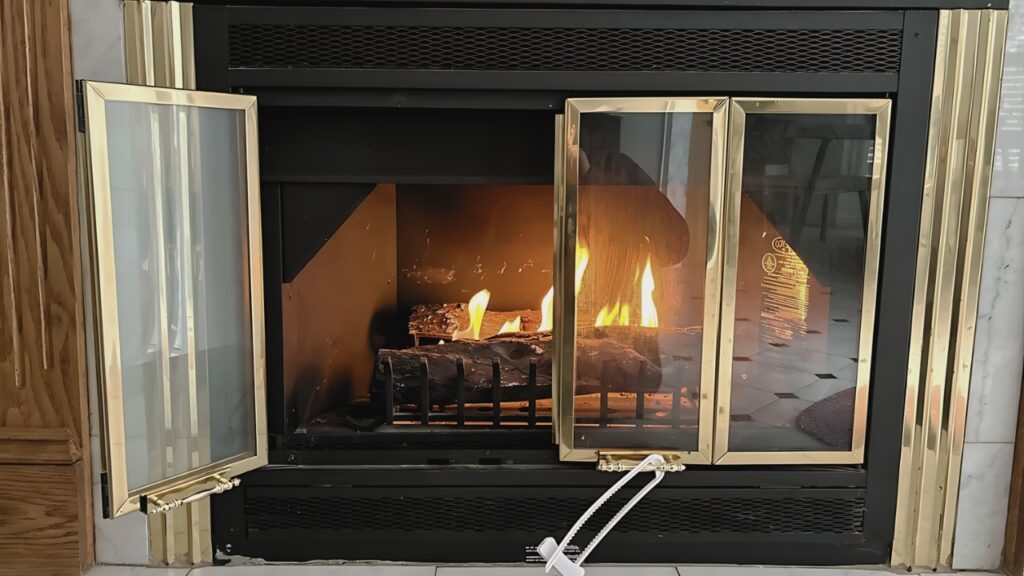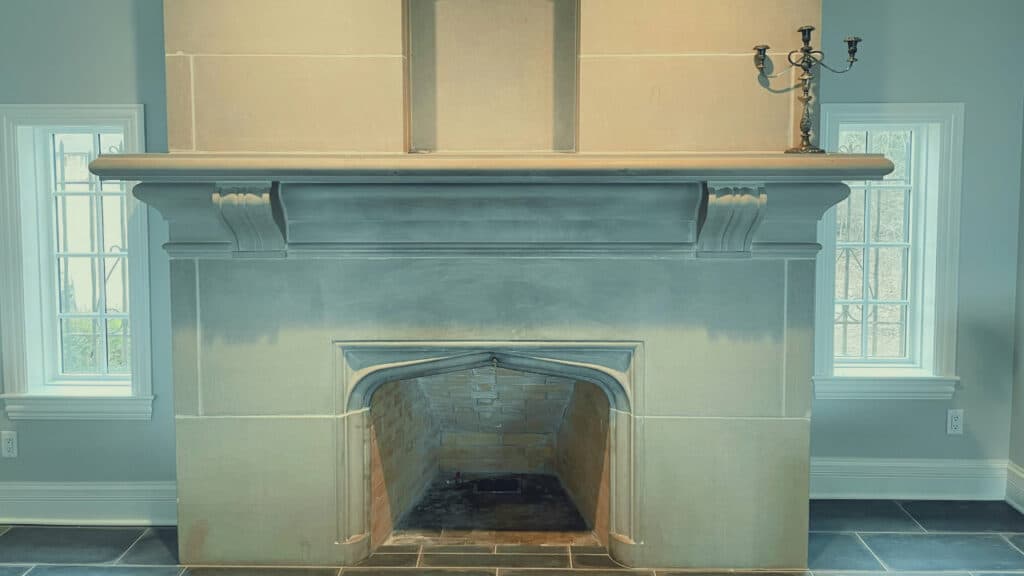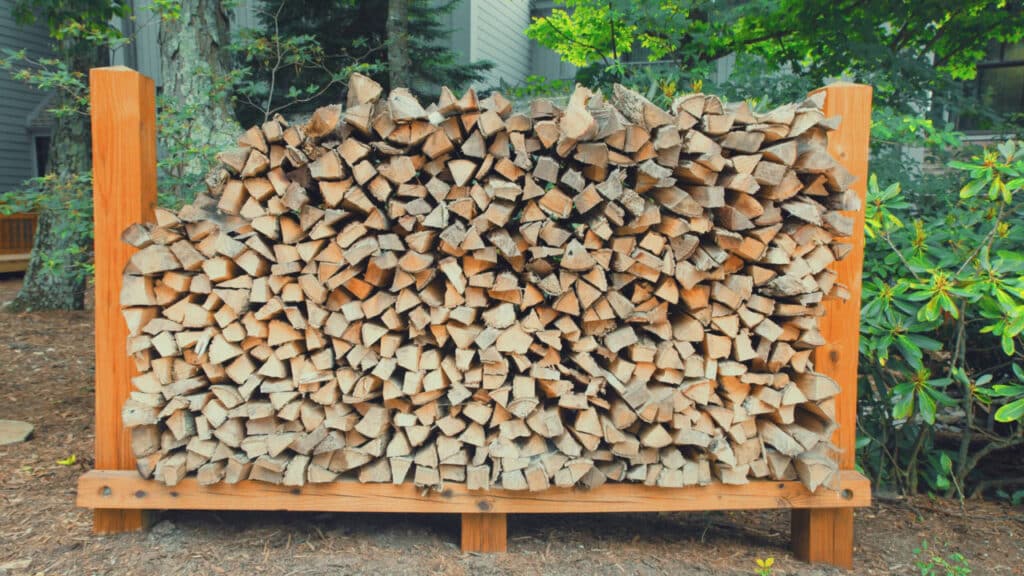Gas furnace flue cleaning is a critical aspect of ensuring the optimal performance and safety of your heating system. Neglecting this essential maintenance task can lead to a variety of issues, with approximately 50% of furnace breakdowns directly linked to the lack of flue cleaning and maintenance.
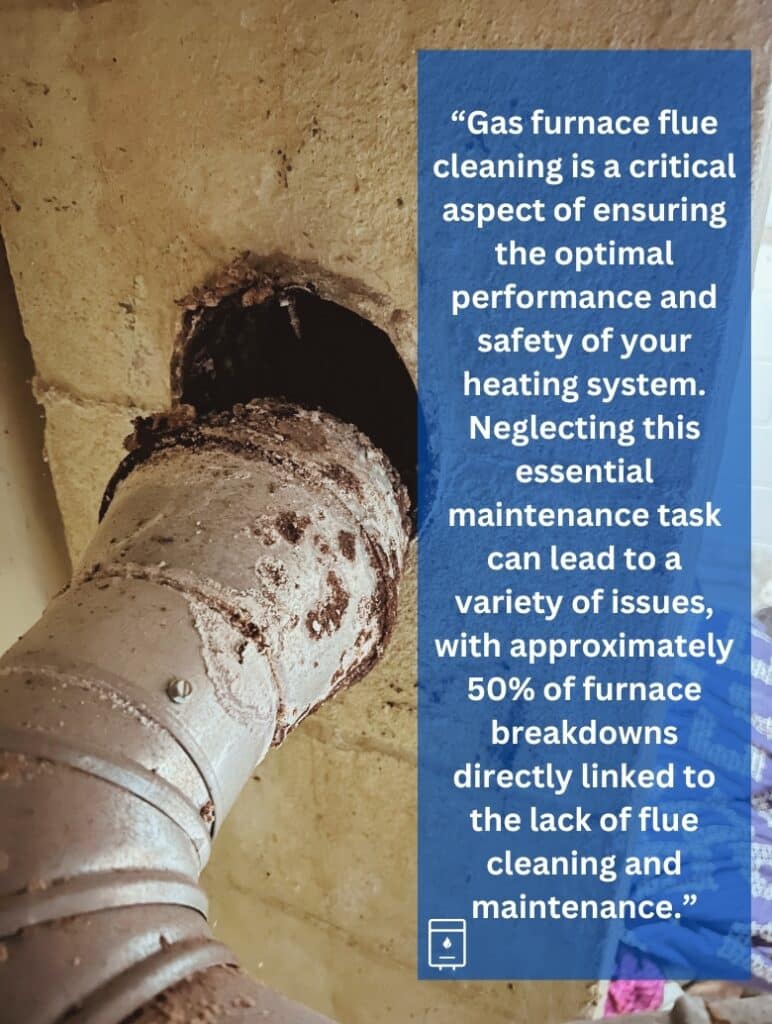
In this article, we will discuss the importance of cleaning your gas furnace flue to prevent breakdowns and ensure heating efficiency.
From the potential risks of neglect to the benefits of regular maintenance, we’ll provide valuable insights to help you understand why prioritizing proper cleaning is a necessary step in home heating care.
——
Do You Need to Hire Chimney & Fireplace Expert?
Get free quotes from qualified experts near you. No commitment required!
——
Is Gas Furnace Flue Cleaning Necessary?
Gas furnace flue cleaning is necessary for maintaining a heating system’s safety and efficiency. The flue, also known as the vent or chimney, plays a crucial role in expelling combustion byproducts, such as carbon monoxide, outside the home.
Over time, a gas furnace flue can accumulate debris, soot, and other contaminants, leading to potential hazards. Regular cleaning ensures proper ventilation and reduces the risk of harmful gas exposure.
The anatomy of a gas furnace flue typically includes a metal or PVC pipe connected to the furnace, extending through the walls and roof. Inside the flue, combustion gases pass through and are expelled outside. Accumulated debris can obstruct the passage, impeding the flow of gases and causing them to back up into the home.
Compared to a traditional fireplace flue, a gas furnace flue differs in that it vents products of combustion from a controlled, enclosed system rather than an open fire. This means that while fireplace flues require regular chimney cleaning to remove creosote and soot, gas furnace flues are crucial for preventing the buildup of potentially lethal gases.
Research by organizations like the U.S. Consumer Product Safety Commission highlights the importance of maintaining gas furnace flues to prevent carbon monoxide poisoning, emphasizing the need for routine inspection and cleaning.
What Happens If You Don’t Clean Your Furnace Flue
Ignoring regular cleaning of your furnace flue can pose several serious risks, both to your safety and the health of your home. Here are some of the main dangers:
1. Carbon Monoxide Poisoning
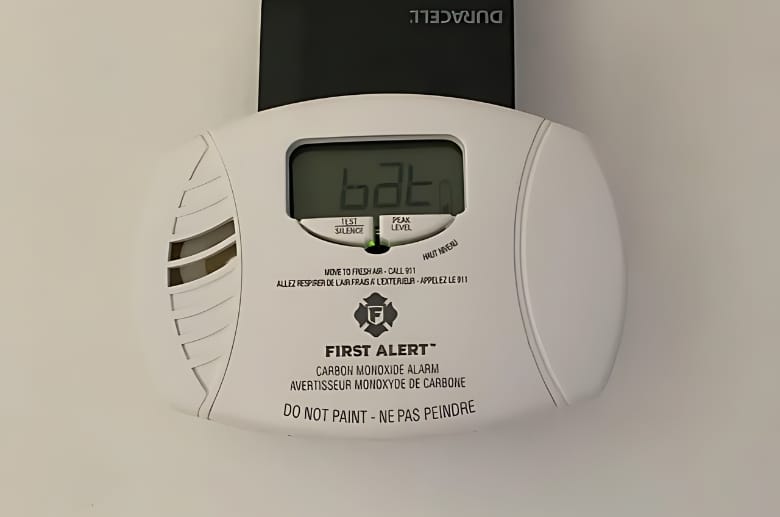
This is the most serious and potentially fatal risk. A clogged flue can prevent the proper venting of carbon monoxide (CO), a colorless, odorless gas produced by incomplete combustion.
CO can build up inside your home and silently poison you and your family. Symptoms of CO poisoning include headache, dizziness, nausea, fatigue, and confusion. In severe cases, it can lead to coma, brain damage, and even death.
2. Chimney Fires
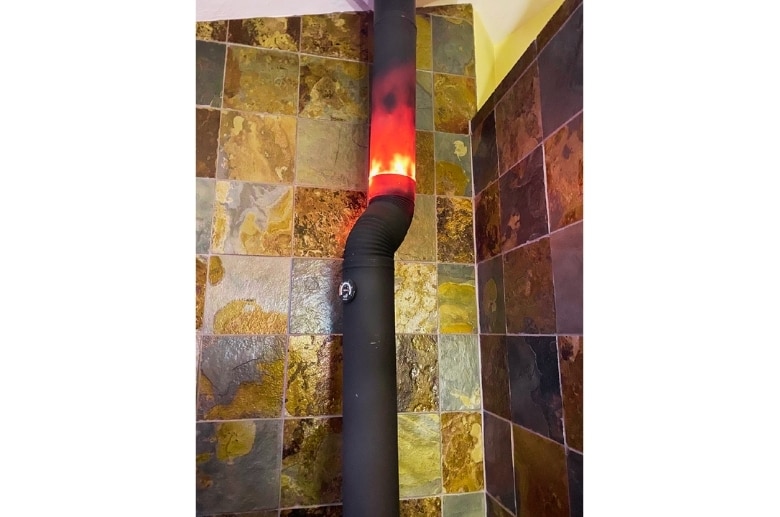
A buildup of soot and debris in the flue can easily ignite, leading to a chimney fire. These fires can quickly spread to the rest of your home, causing significant damage and creating a fire hazard. Early detection and intervention are crucial for preventing serious damage.
3. Reduced Efficiency and Higher Energy Bills
A clogged flue can hinder the proper flow of exhaust gases, making your furnace work less efficiently. This translates to higher energy bills and unnecessary wear and tear on your furnace. Regular cleaning can ensure optimal performance and save you money in the long run.
4. Smoke and Odors Entering Your Home
A blocked flue can cause smoke and unpleasant odors from the furnace to back up into your living space. This can be irritating and make your home uncomfortable.
5. Structural Damage
Over time, the buildup of moisture and acidic condensation from unvented gases can damage the flue liner and surrounding masonry. This can lead to costly repairs down the line.
Neglecting gas furnace flue cleaning is a serious risk that can have significant consequences. Regular cleaning is crucial for ensuring the safety and efficiency of your home heating system.
Signs of a Dirty Furnace Flue
Keeping your furnace flue clean is more than just spring cleaning for your chimney. It’s about safeguarding your home and family from potentially fatal risks like carbon monoxide poisoning and chimney fires. But how do you know if your trusty flue needs a TLC session?
Here are some telltale signs:
Unusual Odors From the Furnace
If you notice strange, unpleasant odors emanating from your furnace, it could be a sign of a dirty flue. Accumulated debris and soot may be releasing unusual pungent smells, indicating a potential issue with combustion or ventilation. Regular inspection and cleaning are essential to address this concern.
Inconsistent Heat Output
A dirty furnace flue can lead to inconsistent heat distribution throughout your home. Soot and debris accumulation may obstruct the smooth flow of combustion gases, resulting in inefficient heating.
If certain rooms feel colder than others or if the temperature fluctuates unexpectedly, it’s crucial to inspect and clean the furnace flue promptly.
High Energy Bills
When combustion byproducts accumulate in the flue, the furnace’s efficiency is compromised. This is because it forces the system to work harder, consuming more fuel to produce the same amount of heat, resulting in elevated energy costs.
Dust And Debris
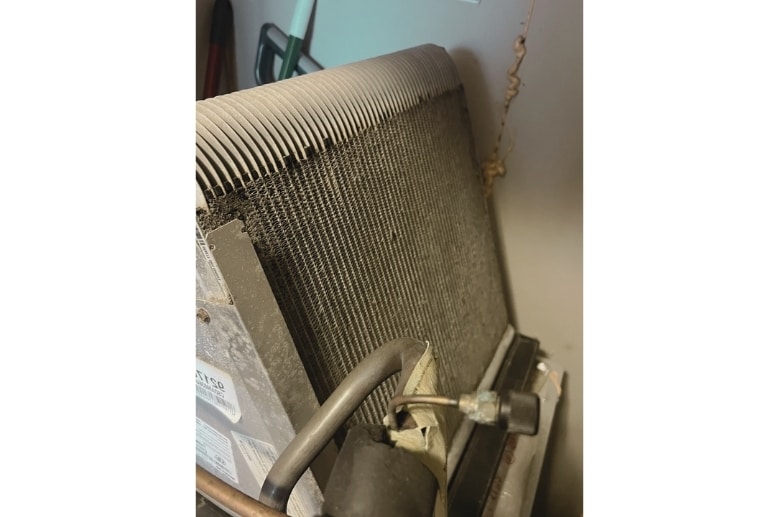
Visible dust and debris around the furnace area are indicators of a dirty flue. As combustion gases pass through, particles stick to the flue walls, forming layers of residue.
The presence of excess dust and debris around the furnace signifies a potential blockage, hindering proper ventilation and indicating the need for flue maintenance.
Furnace Producing Hot Air
Your furnace should push hot air through the ductwork and vents, but if your furnace is producing hot air around the unit, it could be a sign of a dirty furnace flue. A buildup of debris, dust, or soot in the flue can restrict proper ventilation, causing the furnace to overheat and produce excessively hot air. Regular maintenance is crucial to ensure optimal performance.
Front Cover Panel Might Get Hot
A hot front cover panel is a potential indicator of a dirty furnace flue. When the flue is clogged or obstructed, heat generated by the furnace may not be properly vented, causing the front cover panel to become unusually hot.
Monitoring and addressing this issue promptly can prevent safety hazards and ensure efficient furnace operation.
——
Do You Need to Hire Chimney & Fireplace Expert?
Get free quotes from qualified experts near you. No commitment required!
——
How Often Should You Clean Your Gas Furnace Flue
The Chimney Safety Institute of America (CSIA) suggests that gas fireplace flues should be inspected and cleaned annually. This frequency helps prevent the accumulation of debris, such as soot, creosote, and other combustible materials, which could pose a fire hazard.
Factors That May Affect the Cleaning Frequency
Several factors can influence how often you should clean your gas furnace flue. The type of fuel used, the age of the heating system, and the frequency of use are key considerations.
For example, if a gas fireplace is used frequently, there may be a higher likelihood of debris buildup, necessitating more frequent cleaning. Similarly, the type of fuel burned can affect the composition of the residue left in the flue.
Failure to clean the flue can lead to the accumulation of combustible materials, reducing the fireplace’s efficiency and increasing the risk of chimney fires.
Importance of Scheduling Routine Maintenance
Scheduling routine maintenance for your gas furnace, including regular cleaning of the flue, is essential for several reasons.
- First and foremost, it ensures the safe and efficient operation of the heating system.
- Regular maintenance can also extend the lifespan of the equipment, saving you money on costly repairs or premature replacements.
- A well-maintained gas fireplace is more energy-efficient, leading to lower energy bills and reduced environmental impact.
Creosote is highly flammable and can ignite, leading to a chimney fire that may spread to other parts of your home. Moreover, a clogged flue can cause improper venting of carbon monoxide, a colorless and odorless gas that poses a significant health risk.
Gas Furnace Flue Cleaning Cost
The cost of gas furnace flue cleaning typically ranges from $100 to $300, depending on factors such as location, service provider, and the complexity of the job. Annual maintenance is essential to ensure proper ventilation and prevent potential hazards like carbon monoxide leaks.
Some HVAC service companies offer package deals or include flue cleaning as part of a comprehensive furnace maintenance service. Prices may vary, so it’s advisable to obtain quotes from local professionals.
Conclusion
Regular gas furnace flue cleaning is undeniably crucial for maintaining a safe and efficient heating system. As discussed, the accumulation of debris and soot in the chimney poses significant risks, from reduced energy efficiency to potential safety hazards.
Hence, prioritizing this maintenance task not only ensures the smooth operation of your furnace but also safeguards your home and family.
Don’t wait for danger signs! To ensure optimal safety and performance, we strongly recommend scheduling professional chimney cleaning annually. By taking this proactive approach, you can enjoy a warmer, safer, and more cost-effective gas heating system.
Contact us today for further assistance.

